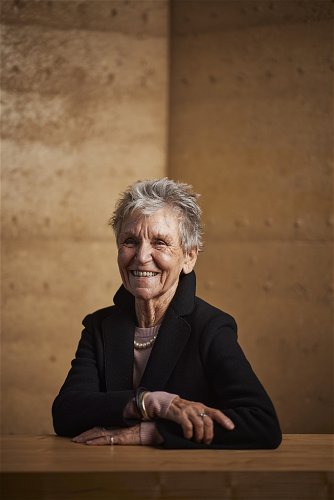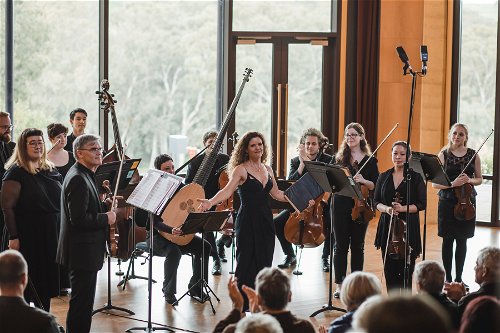Paul Castles Residency
4 - 13 April 2022
Paul Castles is a composer whose music re-conjures how stories are told through live, experiential, and digital performance.
He has been composer-in-residence with Georipae ("The Fountain", winner of Best New Creative Work at the 6th Daegu International Music Theatre Festival), Clare Cook Dance Theatre, and Basin Arts. His score for Wild Goose Dreams was nominated for a Drama Desk for Outstanding Music and produced by the Public Theatre in New York, La Jolla Playhouse, and Theatre Royal Bath. His music has also been performed by the Melbourne Symphony Orchestra, Victorian Opera, Art Eloquentiae, Broken Box Mime Theatre, Alicia Crossley, Nexas Quartet, Sydney Symphony Orchestra Fellows, Clock Ensemble, and others.
Paul's current projects include "The Percipients" with Sibyl Kempson & 7 Daughts of Eve, an artist-in-residence at UKARIA Cultural Centre where he is creating a new project for Light Adelaide, and a collaboration with poet Nicole Lee.
Fellowships include the Sundance Institute, Centre for Ballet and the Arts, Public Studio of the Public Theatre, Yaddo, Composer/Librettist Studio at new Dramatists, Old Vic Lab, New Opera Ventures, New York Theatre Workshop, and Yaddo. Paul is a graduate of the Tisch School of the Arts of New York University and the Sydney Conservatorium of Music.

Paul used his residency at UKARIA to develop a new work of immersive music-driven multi-sensory theatre being created for Light Adelaide with production by Wldr. He will be joined by an interdisciplinary team of collaborators including pianist and creative director Nicole Brady, sound designer and engineer Bob Scott, violinist Alexandra Osborne, cellist Rachael Tobin, cinematographer Alexander Smith, and chef Brendan Wessels.
‘Essentially what we’re working towards is filming and recording most of the music in the hall here,’ Paul says. ‘We have a cinematographer who’ll be working with Nicole on capturing a lot of local scenery and light.’
‘UKARIA is obviously a really beautiful place – how the sun comes up and the light hits the trees ties into the whole ritualistic aspect of music and eating,’ Nicole says. ‘Our project starts in the early morning and then travels through the day. We’ll start tomorrow [Saturday 9 April] at Ngeringa winery – we’re going to film the harvesting of the grapes. There’s a lot of different colours and textures we want to capture.’
‘It’s also a collaboration with the chef at Aurora,’ Paul explains. ‘The idea is to treat taste in the same way we treat design principles like visuals or physical design or music and sound. There are four movements that are being matched with four taste experiences that the chef is devising. There’s no strict narrative but there is an underlying story to it about the experience of memory.’
‘Unlike visuals or written text (which our brains interpret very literally), I think our brains have a harder time interpreting sound and music – and also taste – because they’re more abstract. So they often become very evocative when it comes to memory. I think most people have certain pieces of music or experiences of taste that are really nostalgic or hearken back to really specific memories.’
‘So that’s the idea behind it – we’re creating a synesthetic, multi-sensory work in a context that ties into the ways our brains are changing in terms of how we experience things. Technology is unlocking a lot of potential, and The Lab has these amazing screens that can trick the brain into thinking you’re somewhere else.’
‘There’ll be an actor guiding the whole thing,’ Nicole explains. ‘People will be standing in a space together, enjoying evocative bites of food. There’ll be text that will shape things as well – pre-recorded as part of the sound design.’ After the residency, the long process of postproduction will begin. ‘We’re essentially making a film and a 360-degree soundtrack, mixed in Dolby Atmos.’
‘That’s the really nice thing about being here, recording the music and visuals, and getting to create it,’ Paul says. ‘After this week, all those things will exist and we’ll be able to work with them. Then we go through a whole iterative physical design process, probably in the space in Adelaide. We’re hoping to present it sometime towards the end of the year, in spring, but we’ll see!’
This residency was supported by a partnership between UKARIA Cultural Centre and the Australia Council for the Arts












